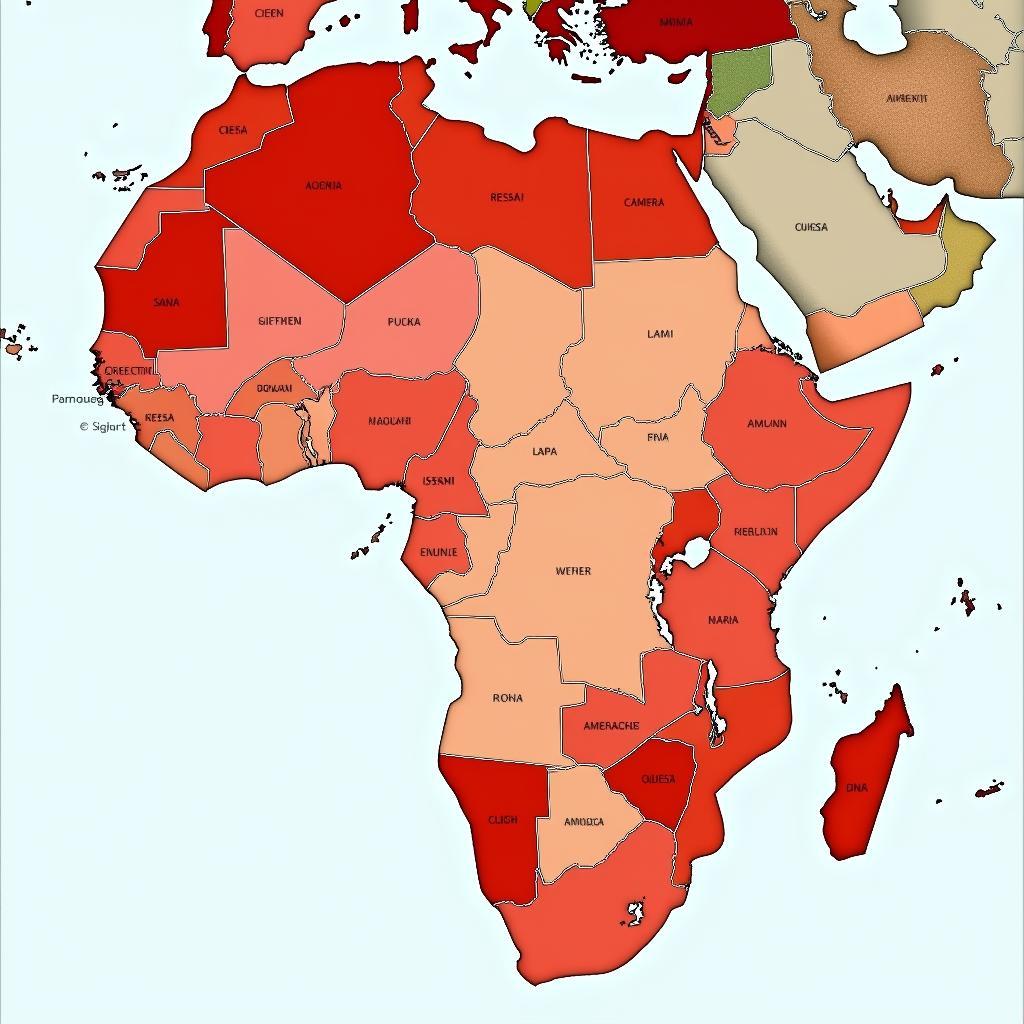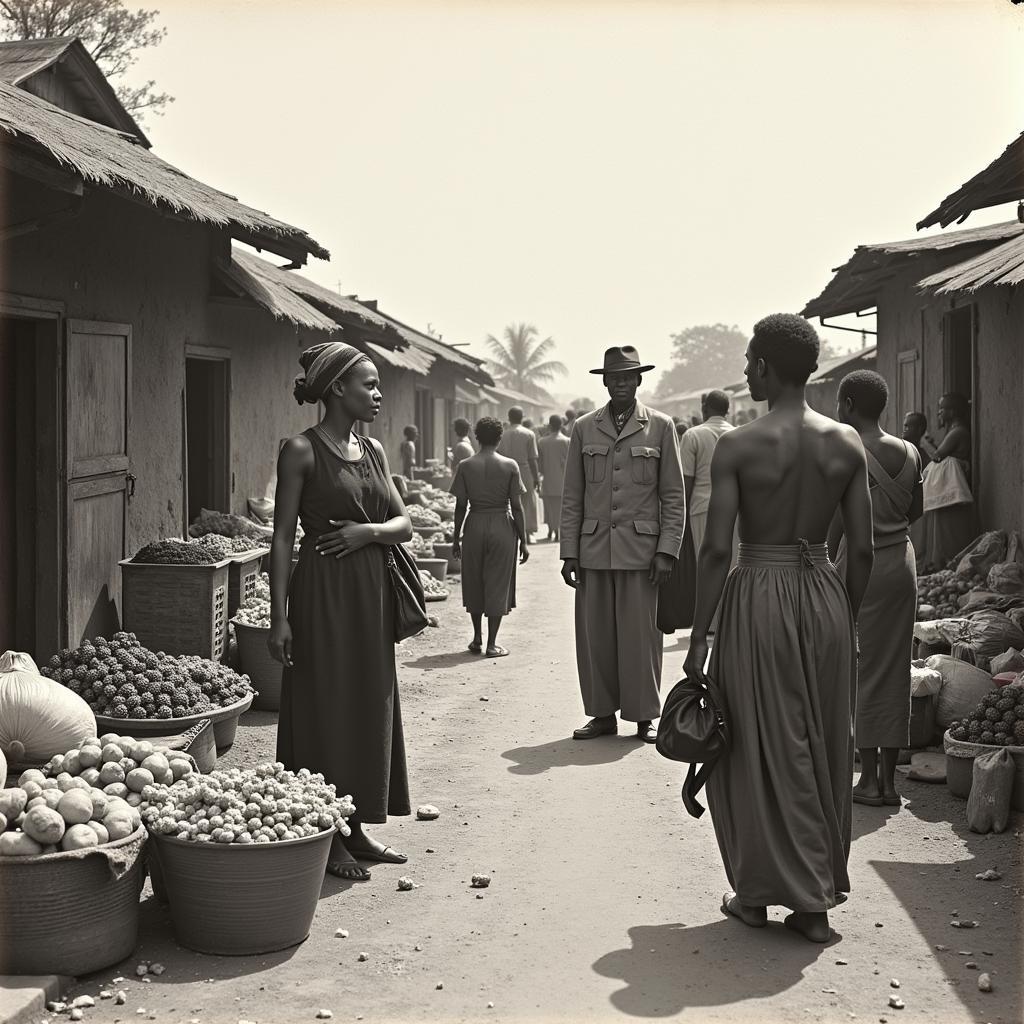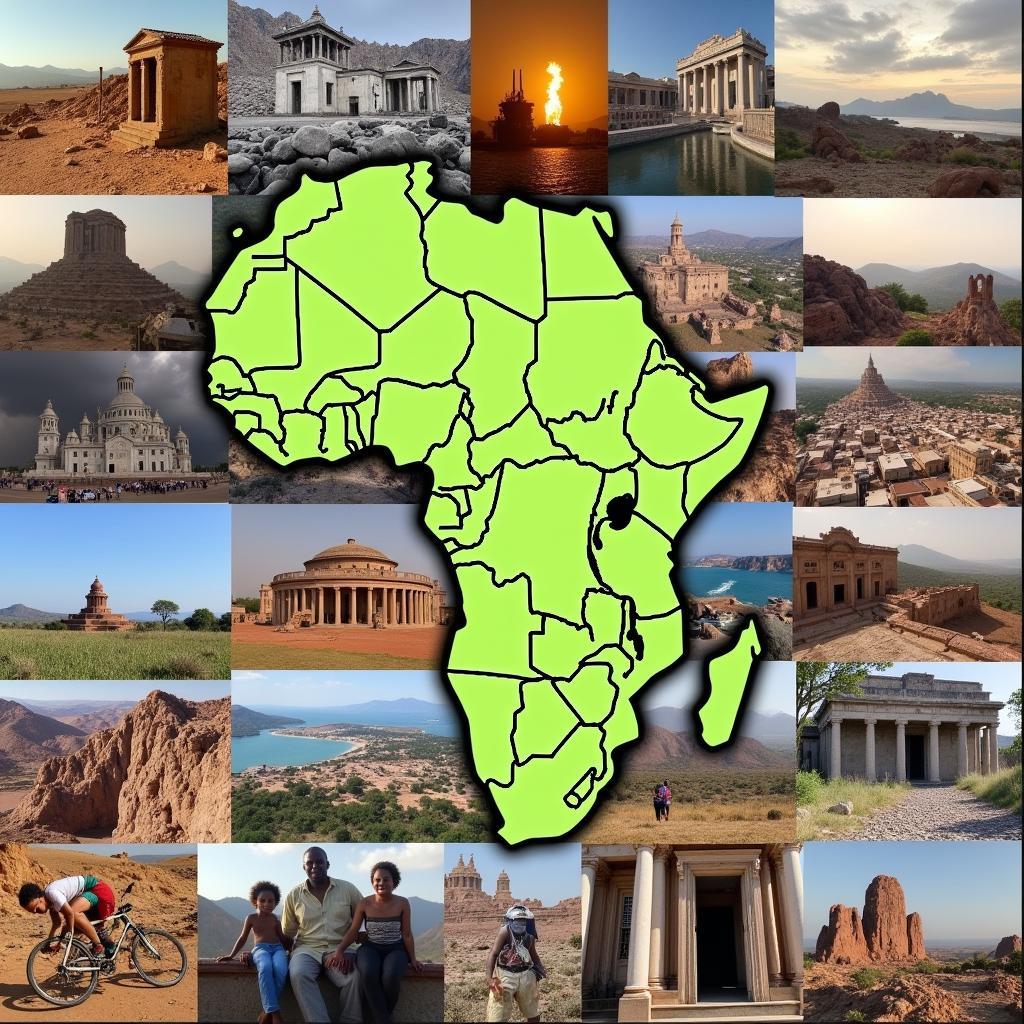African Countries That Were Colonized: A Comprehensive Overview
The colonization of Africa is a complex and often brutal chapter in history. Understanding which African countries were colonized, by whom, and the lasting impact is crucial for comprehending the continent’s present. This article explores the extensive reach of European colonization across Africa, examining the motivations, methods, and consequences for the nations involved.
European powers, driven by a thirst for resources, strategic advantage, and a misplaced sense of cultural superiority, carved up almost the entire African continent during the late 19th and early 20th centuries. This period, often referred to as the “Scramble for Africa,” reshaped political boundaries, economic systems, and social structures, leaving an indelible mark on the continent. To fully grasp the complexities, we must delve into the specifics of which African countries were colonized and the distinct experiences they endured. This exploration isn’t just about recounting historical events; it’s about understanding their lasting ramifications on contemporary Africa. You can learn more about the history of colonization on the continent at african colonisation history.
The Scramble for Africa: A Continent Divided
The Berlin Conference of 1884-1885 formalized the division of Africa among European powers, with little regard for existing ethnic, linguistic, or cultural boundaries. This arbitrary partitioning led to the colonization of nearly every African country, with the notable exceptions of Liberia and Ethiopia. Britain, France, Belgium, Germany, Portugal, Spain, and Italy each established colonial empires, exploiting Africa’s rich resources and reshaping its political landscape.
British Colonies: From Egypt to South Africa
The British Empire, vast and encompassing, held sway over a significant portion of Africa. Their colonies included Egypt, Sudan, Nigeria, Kenya, Uganda, Tanzania, South Africa, Ghana, Sierra Leone, and Gambia, among others. British colonial rule varied in its approach, from indirect rule utilizing existing local structures to more direct forms of administration. The impact of British colonization on these diverse nations continues to be felt today.
French Colonies: West and North Africa
France’s colonial influence concentrated primarily in West and North Africa, encompassing countries like Algeria, Morocco, Tunisia, Senegal, Ivory Coast, and Mali. French colonial policy often focused on assimilation, aiming to integrate African subjects into French culture and language. This approach had profound and lasting effects on the social fabric of these nations.
 Map of British Colonies in Africa
Map of British Colonies in Africa
Belgian Brutality: The Congo Free State
Belgium’s colonial reign in the Congo Free State, under King Leopold II, is infamous for its exceptional cruelty and exploitation. The regime’s focus on rubber extraction resulted in widespread forced labor, mutilation, and death, leaving a dark stain on colonial history. Learn more about the countries that avoided European colonization at african countries not colonized.
Lasting Legacies: The Impact of Colonization
The legacy of colonization in African countries is multifaceted and enduring. Political instability, economic dependence, and social fragmentation are among the long-term consequences. The arbitrary borders drawn during the colonial era often grouped disparate ethnic groups together, leading to ongoing conflicts and tensions. The extraction of resources and the suppression of local industries left many African economies vulnerable and underdeveloped.
Economic Exploitation: Resource Drain
Colonial powers focused on extracting raw materials from Africa, hindering the development of local industries and creating a pattern of economic dependence that persists in many countries today. This legacy of exploitation continues to shape economic realities in many parts of the continent.
Political Instability: Post-Colonial Challenges
The arbitrary borders imposed by colonial powers often disregarded pre-existing ethnic and cultural divisions, contributing to political instability and conflict in the post-colonial era. The lack of experience with democratic institutions further complicated the transition to self-governance.
 French West African Colonies
French West African Colonies
Social and Cultural Disruptions
Colonialism disrupted existing social and cultural structures, imposing European languages, education systems, and values. While some aspects of this cultural exchange were positive, others led to the suppression of indigenous languages and traditions. Did you know that there are even African ethnic groups in Italy? Discover more at african ethnic group in italy.
Moving Forward: Reclaiming the Narrative
While the shadow of colonization still looms large, African countries are actively working to overcome the challenges of the past. Rebuilding economies, strengthening democratic institutions, and reclaiming cultural heritage are key priorities. Understanding which African countries were colonized and the specific ways in which they were impacted is essential for navigating the path forward. More information on Germany’s colonial presence in Africa can be found at african colonies of germany.
In conclusion, the legacy of colonization in African Countries That Were Colonized continues to shape the continent’s present. Recognizing the complex history of colonization is crucial for understanding the challenges and opportunities facing African nations today. By acknowledging the past, we can better support their efforts to build a brighter future.
 The Lasting Impacts of Colonialism in Africa
The Lasting Impacts of Colonialism in Africa
FAQ:
- Which African countries were never colonized? Ethiopia and Liberia were never formally colonized by European powers.
- When did the Scramble for Africa begin? The Scramble for Africa is generally considered to have begun in the 1880s.
- What was the Berlin Conference? The Berlin Conference of 1884-85 formalized the division of Africa among European powers.
- What were the main motivations for European colonization? European powers were motivated by a desire for resources, strategic advantage, and a belief in their cultural superiority.
- How did colonization impact African economies? Colonization led to the extraction of resources and hindered the development of local industries.
- What are some of the lasting political consequences of colonization? Colonialism contributed to political instability and conflict due to arbitrary borders and a lack of experience with democratic institutions.
- How did colonization affect African cultures? Colonization disrupted existing social and cultural structures, leading to both positive and negative cultural exchange.
You can learn more about an African country that remained uncolonized by a European power at african country never colonized by a european power.
For any assistance, please contact us at Phone Number: +255768904061, Email: kaka.mag@gmail.com or visit our address: Mbarali DC Mawindi, Kangaga, Tanzania. We have a 24/7 customer support team.


